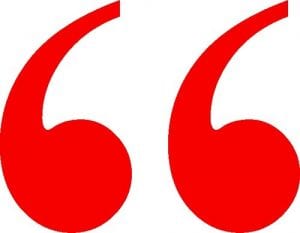With interest in the approaching US Presidential election reaching fever pitch in the media – there doesn’t seem to be a common consensus on which way the contest will swing. Some polls show a decisive victory for the Democrats, while others point to a win for Donald Trump and his Republican party.
Everyone seems to have a view on who they want to win – but, despite blanket news coverage and a glut of opinion and comment from all corners of the world, it remains difficult to ascertain which way it will go.
Unless you look closely at the data… In a recent study conducted with a colleague in Switzerland, I developed a model to demonstrate how and when ‘charisma’ can help leaders and in doing so influence the result of contests such as Presidential elections.
Charisma appears only important to voters when the state of the economy is unclear
We analysed data from the last 25 US elections and looked at two main factors – the state of the US economy and the ‘charisma’ of each candidate. One key discovery was that a candidate’s charisma appears only important to voters when the state of the economy is unclear. If the economy is perceived to be either good or bad, then the charisma of the candidates doesn’t matter.
So – what does this mean for the 2016 race? Well, our analysis of Clinton and Trump’s nomination speeches show that Trump is slightly more charismatic that Clinton. Couple this with the sluggish nature of the current US economy and all the indicators point to a Trump win come November.
However, there is some comfort for all the Democrats out there hoping for a second Clinton administration. I believe that the unique nature of this race, and specifically the two candidates involved (Clinton as the first woman candidate and Trump as, well…Donald Trump) means that this is still a very tough race to call.

I am a professor of organizational behavior. My main interests are in leadership—broadly defined—and in research methods. That is, I am interested in understanding why certain individuals are better leaders than others, how we can train individuals to be better leaders, and in understanding how we evaluate and select leaders in everyday contexts. In terms of research methods, my primary interest is in understanding how we can know whether something is true, beyond what we might think based on our intuition, on fads, or on face value, particularly in contexts where many factors may be at play.
More information on Philippe Jacquart:
• His CV online
• His blog
• His ResearchGate Page
Further reading…
- Jacquart, P. (2015). When does charisma matter for top-level leaders? Knowledge@emlyon, November 3rd, 2015.
Read article online - Jacquart, P., & Antonakis, J. 2015. When Does Charisma Matter for Top-Level Leaders? Effect of Attributional Ambiguity. Academy of Management Journal, 58(4): 1051–1074.
Read abstract online



Commentaires récents